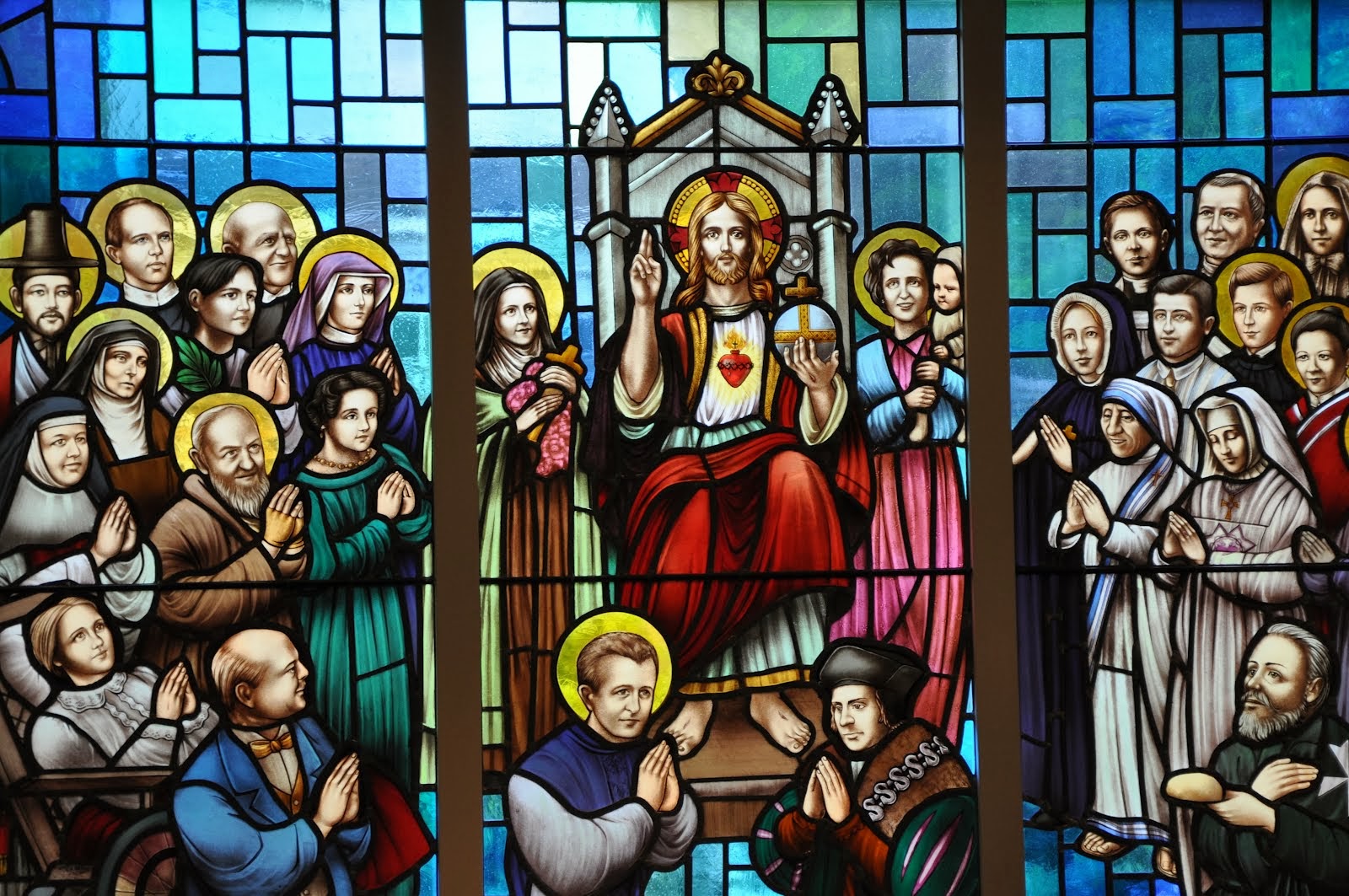
“Once, in Cana of Galilee, He turned water into wine, resembling blood. Is it incredible, then, that He should have turned wine into blood? When called to a bodily marriage, He miraculously worked that wonder. Shall He not rather be acknowledged to have given the fruit of His body and blood to the children of the bridal chamber?” St. Cyril of Jerusalem (4th century, Doctor of the Church)
“Do you understand, then, how Christ has united His bride to Himself and what food He gives us all to eat? By one and the same food we are both brought into being and nourished. As a woman nourishes her child with her own blood and milk, so does Christ unceasingly nourish with His own blood those to whom He Himself has given life.” St. John Chrysostom (4th-5th centuries, Doctor of the Church)
“If the Word of God is living and active, and the Lord did all that He willed; if He said, ‘Let there be light,’ and there was light, ‘Let there be a firmament; if the heavens were established by the Word of the Lord and all the host of them by the breath of His mouth;…if God the Word of His own will became man and the pure and undefiled blood of the Holy Ever-Virgin made His flesh without the help of seed – can He not then make the bread His body and the wine and water His blood? He said in the beginning, ‘Let the earth bring forth grass’, and even to this present day, when the rain comes it brings forth its proper fruits urged on and strengthened by the divine command. God said, ‘This is My body,’ and, ‘This is My blood,’ and, ‘Do this in remembrance of Me.’ And so it is at His omnipotent command until He come again.” St. John of Damascus (7th-8th centuries, Doctor of the Church)
“Now as Jesus appeared to His holy Apostles in true flesh, so now He shows Himself to us in consecrated bread; and as with their physical sight they saw only His flesh, but contemplating Him with the eyes of faith, believed that He was God, so too, now, though we see bread and wine with the eyes of our body, we should see and firmly believe that it is His Most Holy Body and Blood, living and true.” St. Francis of Assisi (12th-13th centuries)
“Experience has made me realize in my twenty-five years of serving souls the all-powerful virtue of this Divine Sacrament, to strengthen hearts in good, exempt them from evil, console them, and in a word make them God-like in this world if it be frequented with faith, purity and devotion.” St. Francis de Sales (16th-17th centuries, Doctor of the Church)
“’And I, if I be lifted up from the earth, will draw all things to Myself.’ It was from the height of His Cross that our Lord first drew all souls to Himself by redeeming them. But when our Lord uttered these words, He certainly also had in mind His Eucharistic throne, to the foot of which He means to draw all souls so as to bind them there with the chains of His love.” St. Peter Julian Eymard (19th century)
“The Holy Eucharist is a great means through which to aspire to perfection. But we must receive It with the desire and intention of removing from the heart all that is displeasing to Him with Whom we wish to dwell.” St. Pio of Pietrelcina (19th-20th centuries)
“Every heart seeks a happiness outside of it, and since perfect love is God, then the heart of man and the heart of Christ must, in some way, fuse. In human friendship the other person is loved as another self, or the other half of one’s soul. Divine friendship must have its mutual ‘indwelling’: ‘He who dwells in love dwells in God and God in him’. This aspiration of the soul for its ecstasy is fulfilled in the Sacrament of the Eucharist.” Ven. Fulton Sheen (19th-20th centuries)
“Our Lord’s entire life was directed toward Calvary. Your entire life should be directed toward the Eucharist.” Ven. Francis Xavier Nyugen Van Thuan (20th-21st centuries)
“Make your lives intensely Eucharistic.” Pope St. John Paul II (20th-21st centuries)
